Inpatient Census 2016: Hospital Based Complex Clinical Care
Results from the first Hospital Based Complex Clinical Care Census, carried out in March 2016.
This document is part of a collection
1. Patients Receiving Hospital Based Complex Clinical Care
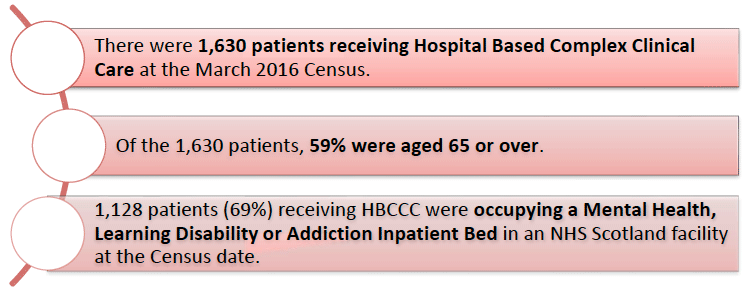
Number of patients receiving HBCCC in Census
There were 1,630 patients receiving Hospital Based Complex Clinical Care at the March 2016 Census.
Of the 1,630 patients receiving HBCCC 1,128 (69%) were occupying a Mental Health, Learning Disability or Addiction Inpatient Bed in an NHS Scotland Facility. 413 patients (25%) were in a General Acute NHS Scotland facility, while 89 patients (5%) were treated outwith NHS Scotland ( e.g. Private Facilities or NHS facilities elsewhere in the UK).
| Inpatient Census, 2016 |
Patients |
|---|---|
| Part 1: Mental Health Bed Census |
1,128 |
| Part 2: Out of Scotland NHS Placements |
89 |
| Part 3: HBCCC (general acute) |
413 |
| All HBCCC patients in Inpatient Census |
1,630 |
Age and Gender
The following chart shows the age and gender breakdown of patients receiving HBCCC at the March Census. Some key points include:
- Of the 1,630 patients, 849 (52%) were male, while 781 (48%) were female. Of patients aged under 65, 66% were male.
- The patients in the census were mostly from older age groups. 13 patients (1%) were aged under 18, 232 (14%) were aged 18-39, 422 (26%) were aged 40-64 and 963 (59%) aged 65+.
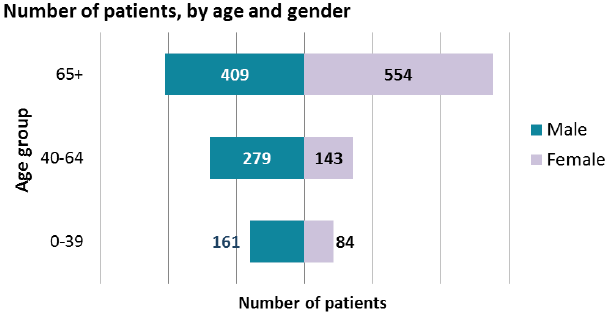
*13 patients were aged under 18 at the Census. Gender breakdown is not presented due to small numbers.
Ethnicity
Of the patients receiving HBCCC at the Census date for whom ethnicity was known, 1,202 (85%) had a White Scottish ethnicity. Information was not provided for 210 patients.
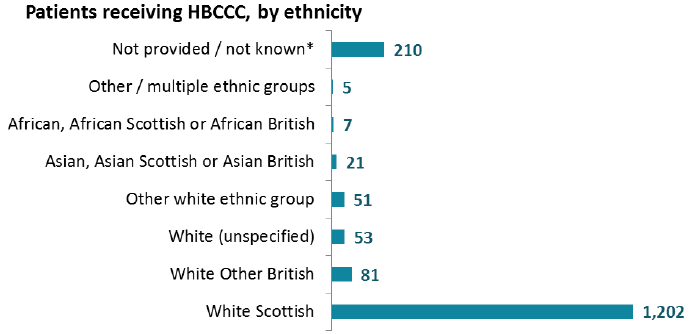
*Includes 89 patients treated Outwith NHS Scotland for whom ethnicity information was not recorded.
Consultant Specialty
As part of the Census NHS Boards were asked to record the medical specialty of the consultants responsible for overseeing the treatment of each patient in the census.
Of the 1,630 patients receiving HBCCC at the census, 532 (33%) had a consultant who specialized in Psychiatry Of Old Age, 412 (25%) had a consultant who specialized in General Psychiatry and 357 (22%) Geriatric Medicine. The full breakdown is shown in the below chart:
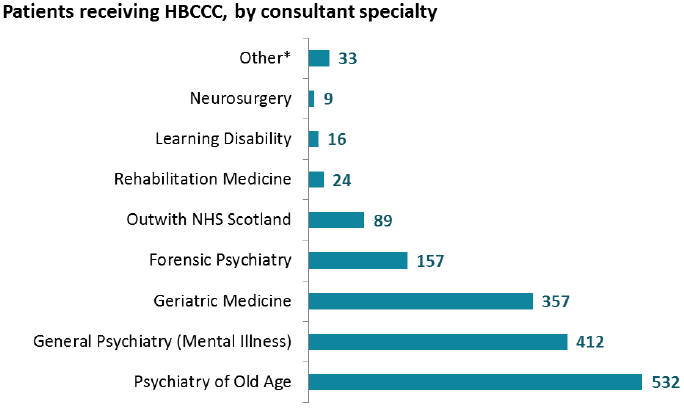
*Other includes a range of specialties with small numbers of patients that have been aggregated to protect patient confidentiality.
NHS Board
NHS Greater Glasgow & Clyde were responsible for funding the treatment of more patients than any other NHS Board at the Census with 578 patients (35%). NHS Lothian had the next highest number with 457 (28%).
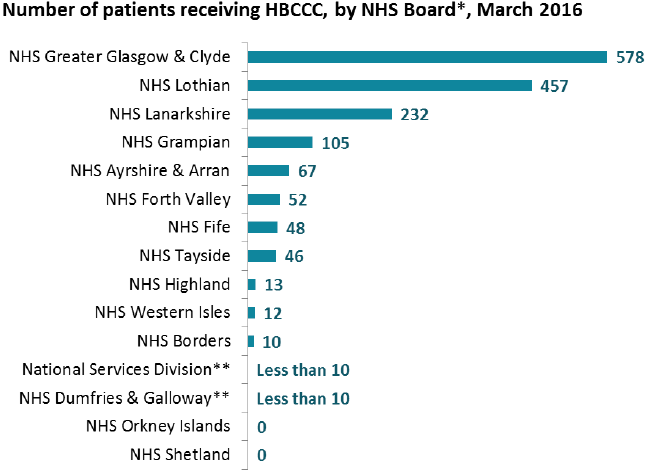
* NHS Board responsible for funding treatment.
**Numbers have been suppressed to protect patient confidentiality.
**National Services Division is funded by the territorial NHS Boards, and provides funding for a small number of patients in cases where they may require more specialized, long-term or cost-intensive treatment.
Length of Stay in Hospital
NHS Boards were asked to record how long patients had been in hospital at the March census date. The average (median) time in hospital was 643 days (approximately 1 year and 9 months).
The spread of length of stay of patients can be seen in the below chart. 279 patients (17%) had been in hospital for less than 6 months, while 354 (22%) had been in hospital for at least 5 years. Note: admission date was missing for 1 patient .
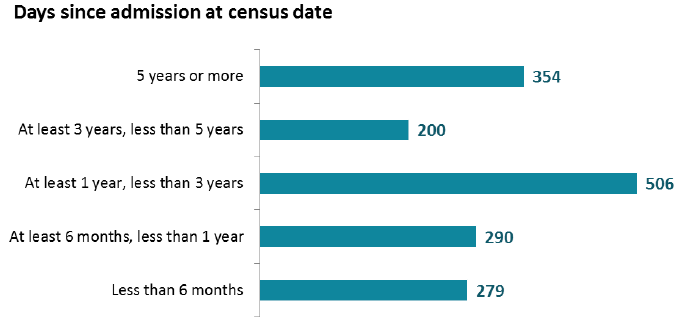
Contact
There is a problem
Thanks for your feedback